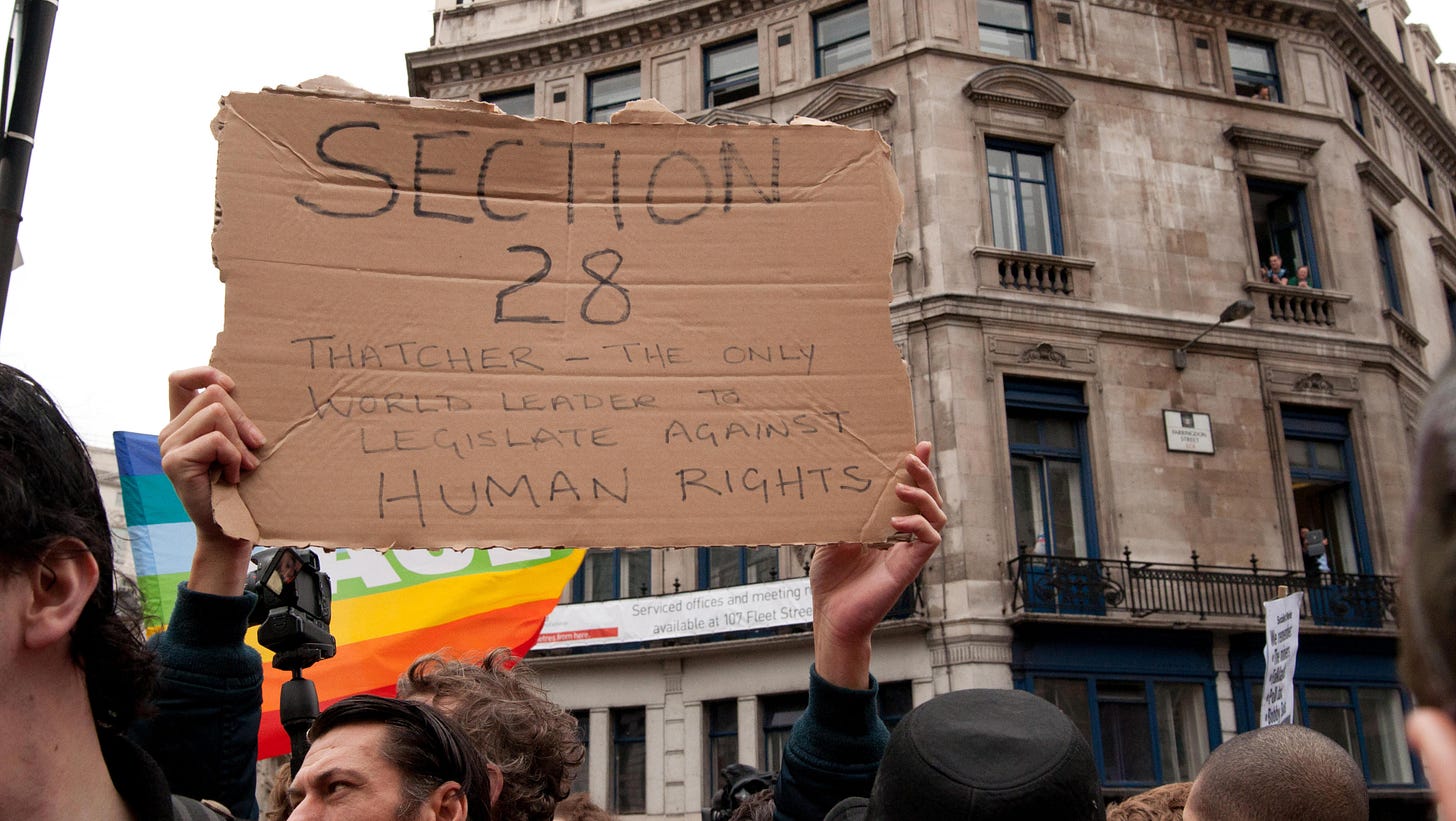Blue Jean: How Margaret Thatcher and Section 28 Radicalised a Generation
Chris Sullivan on a new film that examines the effects of the reviled 1988 legislation on a gay woman and its galvanising influence on wider society
Many will remember the, at times, ludicrous legislation ushered in by Margaret Thatcher, the hero of the Conservative Party. She brought in the Employment Act 1982 that empowered employers to fire striking workers without facing unfair dismissal claims and the Criminal Attempts Act 1981 which rendered that a person may be guilty of attempting to commit an offence “even though the facts are such that the commission of the offence is impossible”, and allowed the police the right to stop and search a person if the officer considered they were even thinking of committing a crime.
But one of her most notorious statutes was Section 28 of the Local Government Act of 1988, which prohibited local authorities from intentionally promoting homosexuality, publishing material with the intention of promoting homosexuality, or promoting the teaching “in any maintained school of the acceptability of homosexuality as a pretended family relationship”. The clause was seen as a sign of the government’s homophobia and, while Thatcher hid behind Jill Knight who introduced that specific section, it was the Prime Minister who sanctioned the Act.
The clause drew attention to the Gay and Lesbian community, allowing direct discrimination and intolerance. It caused pain and anguish, propagated antipathy towards and mistrust of the LGBT community in the UK and served to illustrate the alarmingly outdated homophobia deep within the heart of the Conservative Party.



